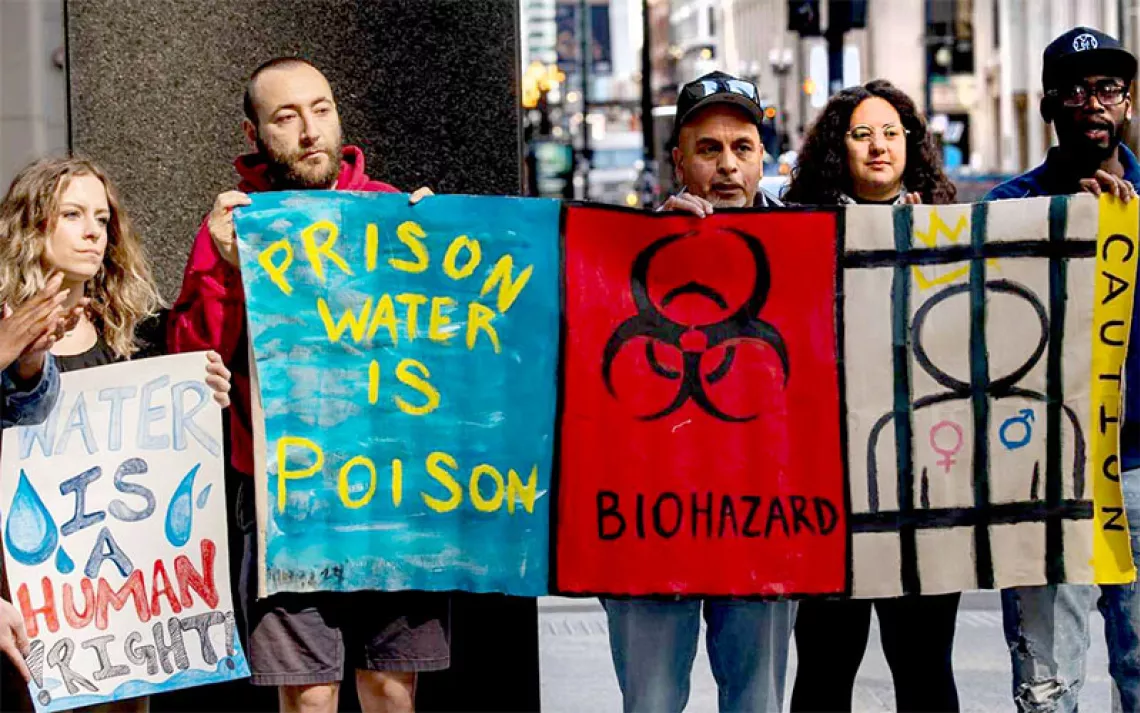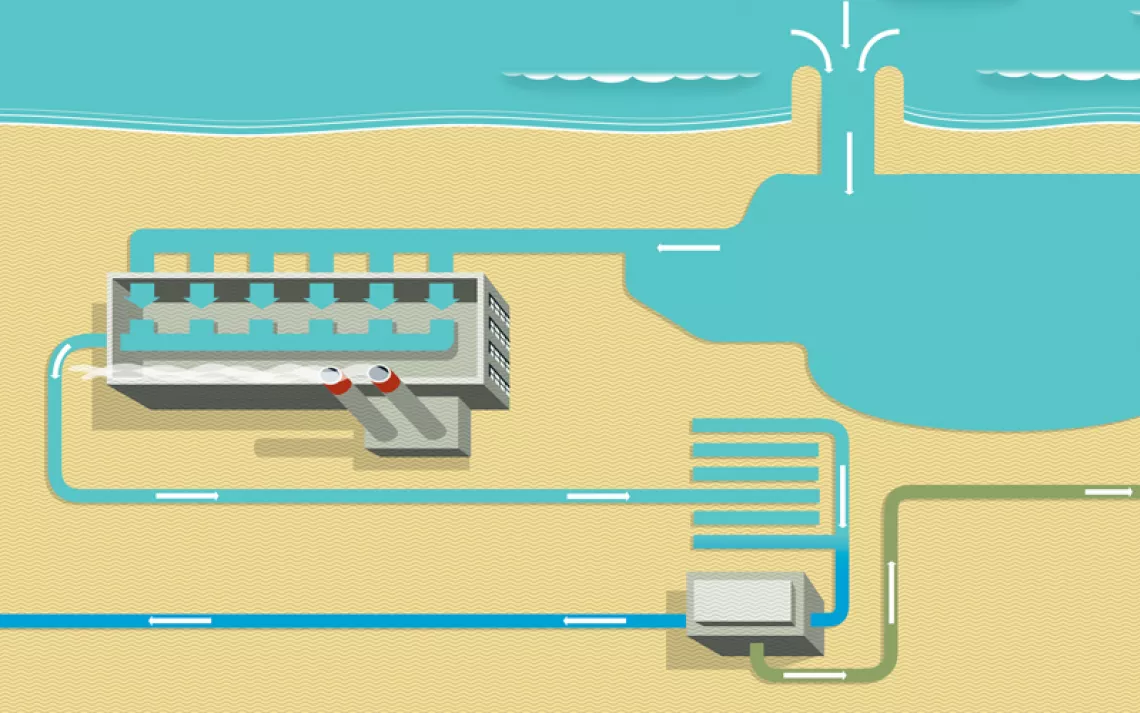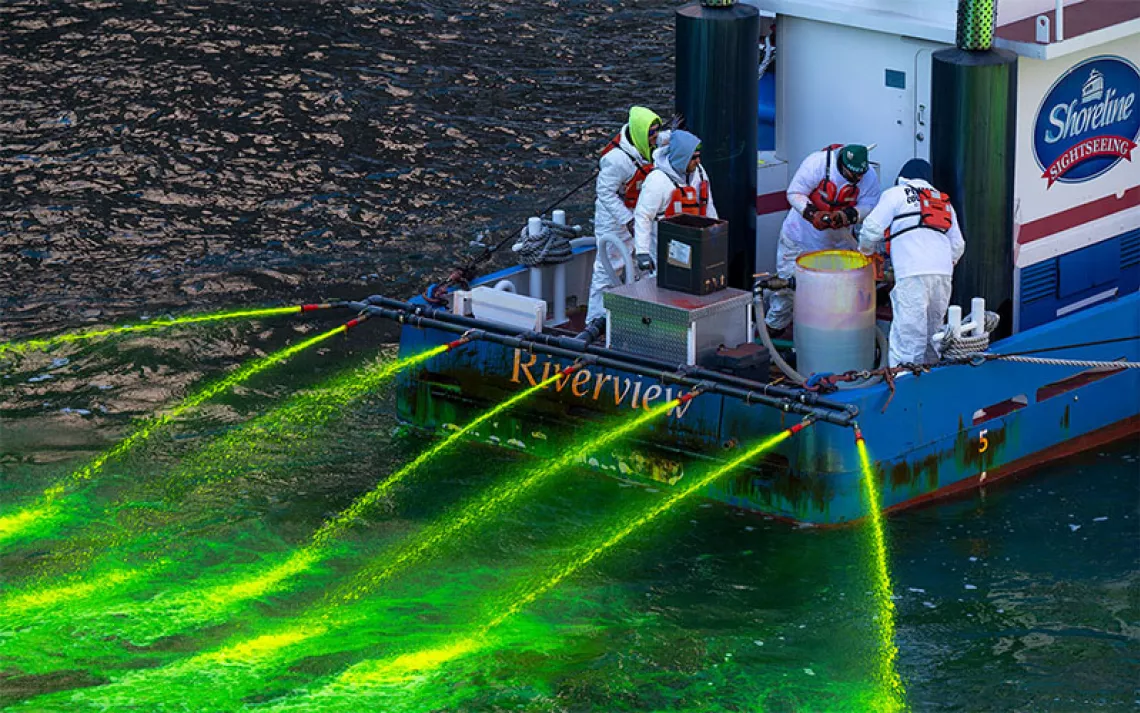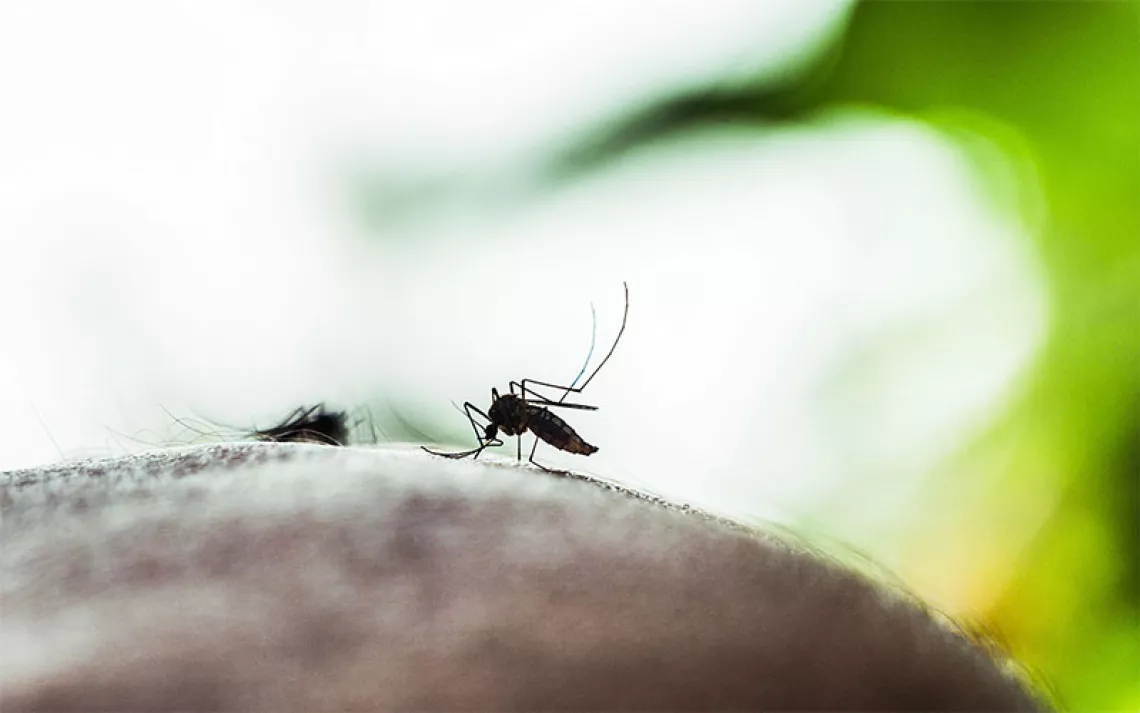Code Blue for the Salton Sea
Youth activists living near the dying sea speak out

Photos by David Bacon
Christian Garza and his brother Ruben are activists with the Sierra Club’s My Generation campaign, for which Marina Barragán is an organizer.
–David Bacon
Christian Garza I was born with asthma. Last year there was a dust storm over a couple of days. I had an asthma attack, and I went to school, but the steroids I had with me wouldn't make it better. My mom picked me up and rushed me to the hospital. They called a code blue and told me I had a partially collapsed lung. If I'd been out there 10 minutes longer, my whole lung would have collapsed and I'd have suffocated.
The attacks used to be once a month—now it's every couple of days. I'm only 19. What am I going to do when I'm 25? And I'm not the only kid with asthma here; there are so many kids with worse asthma than I have. In Mecca [an unincorporated community on the north shore of the Salton Sea], when the wind is building up, the locals know that they should go inside. It becomes a ghost town. Just breathing is going to make you sick. You can't be out there for long.
Every time I'd have an asthma attack, it would cost $200 for medication because I didn't have proper insurance. Then I would have to go down to the food bank because we couldn't afford food after that. I always felt a huge burden—as a little kid, I would lie to my mom and tell her I didn't have an asthma attack, because I knew there was not going to be food on the table after that.

Ruben Garza My mom shouldn't have to worry that when we go outside, we won't be OK when we come back in.
If you treat the Salton Sea as just a problem, you're treating my brother's asthma attacks as something he can just live with. But the sea can be restored. If we all work together, we can provide water to keep it from receding. Water in the sea would give my brother a chance to live his life, a right every person should have
Marina Barragán The majority of the shoreline is on native reservation land. If it were in Sacramento or L.A., they would not have been able to ignore it for so long. But now there is an uproar in our community—people care. The sea is hurting a lot of people, and yet it's a beautiful sea. We have to listen to the voices of the community and what they want. The sea is fighting to live, and we're fighting with it. And we're not going to be chased out of our home because they can't clean it up.
A lot of people make it seem like it's either the birds or public health. It doesn't have to be one or the other. It has to be both. My Generation is fighting for multipurpose solutions that are beneficial for both public health and bird habitat. We need to get more water in the sea and create more wetlands. We're here to save ourselves; if we let the sea die, we will die.
Christian Garza I love this place, but it's hard to feel like I can have a family here and feel like they're safe. The Sierra Club showed me what caused my asthma attacks. I thought they were just normal, something I just had to live with. The Sierra Club gave me opportunities to get my voice out and let the people know what's happening to us. This is a chance to have change for the better for me, my family, and my community.
Marina Barragán We need to be heard; that's the biggest thing. The My Generation campaign does grassroots organizing. We're trying to protect lives and marginalized communities like our own. But at the end of the day, Christian still suffered a collapsed lung. My four-year-old nephew developed asthma this year. My sister has asthma and bronchitis, and 10 years ago, I lost my uncle to respiratory illness.
The three of us became family because we're fighting side by side for our lives. My Generation is not giving up.
 The Magazine of The Sierra Club
The Magazine of The Sierra Club



